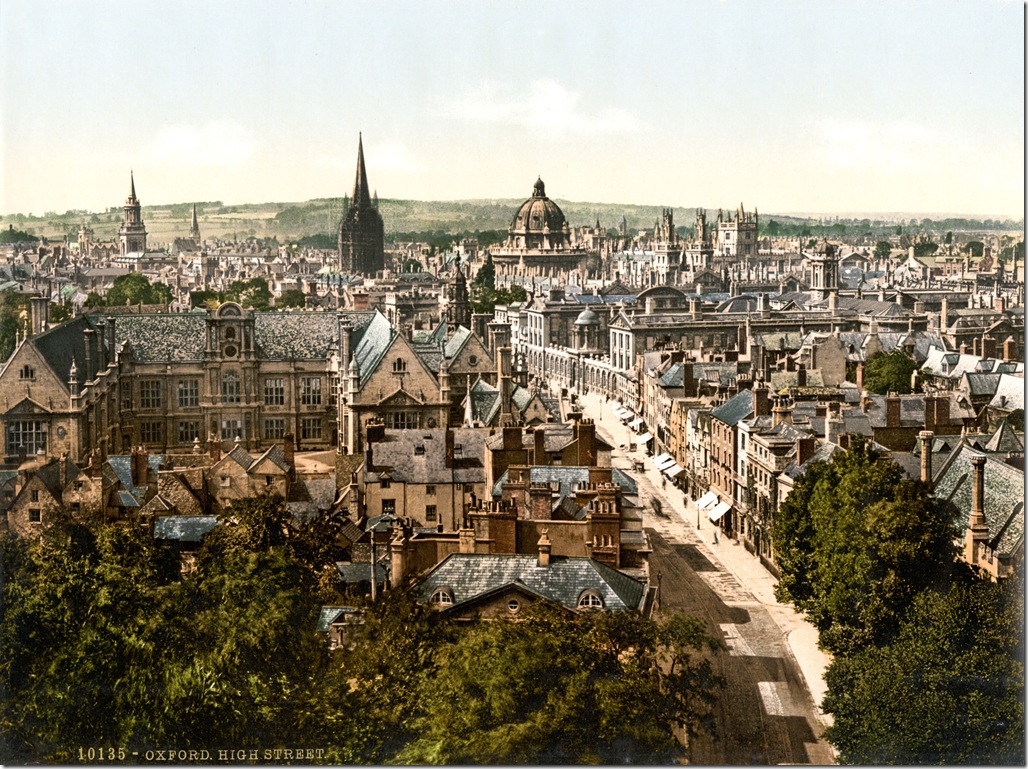I've just finished reading Jude the Obscure by Thomas Hardy. I'm working my way through Hardy's novels mainly because we spent so much time in Dorset last summer: the sense of place and way in which the landscape acts on the individuals is very striking in Hardy's writing.
Jude the Obscure is depressing and dispiriting and quite astonishingly horrific. Much of the plot revolves around the idea of what constitutes true marriage, and the place of sex within it - I was pretty struck to find such frank discussion of sex in a book published in 1895. The multiple tragedies of the plot are shocking and awful beyond words really - and Hardy seems quite deliberately to avoid encompassing the full horror in language, offering only short and abrupt accounts of the climactic moments.
Despite the romantic and familial tragedies which hit Jude, in a sense it's his own unrealistic aspirations which utterly destroy him.
As a child, he becomes obsessed with the idea of studying at 'Christminster' - a university town, very much like Oxford. For Jude, it's a highly romantic place - characterised by the eminence of a tradition of learning stretching back to medieval times, the peace and tranquillity of lives dedicated to the pursuit of learning, the centuries-old architecture a moving witness to the intellectual achievements which have happened within its walls. But those very walls, on which he ends up working as a stone-mason, symbolise his exclusion - for no other reason that his social status and background. The reader knows, with a sense of pathetic inevitability, that Jude's hopes and dreams, and endless nights spent self-teaching, are utterly in vain. And not only does this make a tragedy of Jude's life - it makes a mockery of learning and all it apparently stands for.
'He always remembered the appearance of the afternoon on which he awoke from his dream. Not quite knowing what to do with himself, he went up to an octagonal chamber in the lantern of a singularly built theatre that was set amidst this quaint and singular city. It had windows all round, from which an outlook over the whole town and its edifices could be gained. Jude's eyes swept all the views in succession, meditatively, mournfully, yet sturdily. Those buildings and their associations and privileges were not for him. From the looming roof of the great library, into which he hardly ever had time to enter, his gaze travelled on to the varied spires, halls, gables, streets, chapels, gardens, quadrangles, which composed the ensemble of this unrivalled panorama. He saw that his destiny lay not with these, but among the manual toilers in the shabby purlieu which he himself occupied, unrecognized as part of the city at all by its visitors and panegyrists, yet without whose denizens the hard readers could not read nor the high thinkers live.'
Oxford. Image credit: http://psychogeographicreview.com/?p=2014
This all made for quite uncomfortable reading for me, happily ensconced in the honey-coloured quad of St John's. I truly don't think that the same comments could be made of Oxford today - but the danger is always there that we become so absorbed in tradition and self-congratulation, that we fail to ensure that the university offers opportunities to as many as possible, regardless of background; in welcoming people to the university - to research, to learn and to teach - all our own minds are opened by the insights and contributions which come together. And this is why study days for A-level students, like the one we held last week, are so important - so thanks to everyone who came!


As you've said, I don't think these problems are completely relevant to Oxford today. The main issue I think facing working class students coming to Oxford is an element of 'culture shock'. I mean this in two senses. First, the obvious gap between, say, an inner-city, a council estate or a rural town with the traditions and prestige and expectations of an historic university. Even the buildings, as Hardy appears to have understood, seem to have expectations of you.
ReplyDeleteSecondly, the heavily regulated, organised, communal JCR activities in which undergraduates are encouraged to participate is a world away from the life probably experienced by many working class or lower-middle class people back home, in their old schools and otherwise. The JCR idea in your first year, where third years are heavily involved in your social life and expected to guide you one way or another, is evocative of the 'prefect' system of high profile private/public schools rather than most comprehensives.